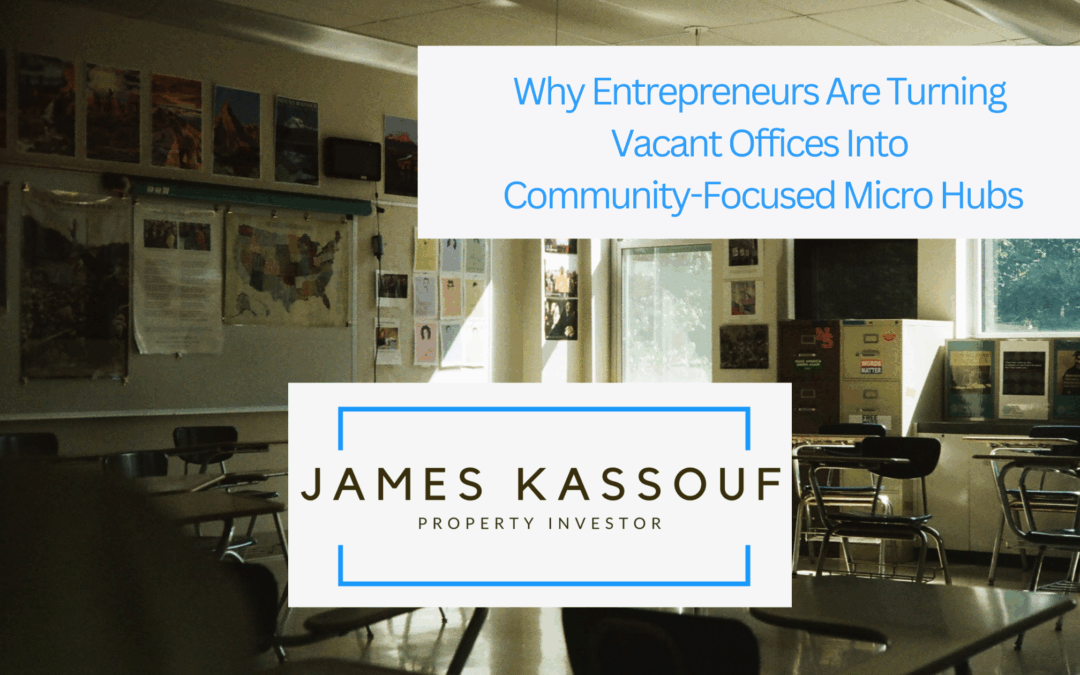Across cities worldwide, vacant office buildings—once symbols of bustling corporate life—are undergoing a quiet but meaningful transformation. With remote and hybrid work reshaping how businesses operate, many traditional office spaces no longer serve their original purpose. Yet instead of fading into urban emptiness, these buildings are being reimagined by forward-thinking entrepreneurs who see possibility where others see decline. The result is a growing trend: converting vacant offices into community-focused micro hubs that blend innovation, social connection, and local impact.
This shift is driven in part by necessity. The rise of remote work has left many buildings underused, prompting property owners and entrepreneurs to rethink their approach to space. Instead of pursuing outdated leasing models, they’re embracing a more flexible and socially meaningful strategy. Micro hubs—a hybrid between co-working spaces, creative studios, local service centers, and community gathering spots—are emerging as the answer.
One key reason entrepreneurs are drawn to this model is its adaptability. Micro hubs can be easily customized to meet specific neighborhood needs. In some cases, floors are converted into collaborative workspaces for freelancers and small businesses. In others, unused offices become classrooms for vocational training, pop-up retail zones, wellness centers, or studios for artists and local creators. This modular, mixed-use design makes the space more resilient, ensuring it stays relevant even as community needs evolve.
Another advantage is accessibility. Traditional offices were often built with infrastructure that supports productivity—strong internet, open floor plans, reliable utilities—all of which make the transition to community use relatively seamless. Entrepreneurs can repurpose what already exists, reducing renovation costs and speeding up deployment. This affordability encourages more experimentation and lowers barriers to entry for those who want to create community-led initiatives.
The rise of micro hubs is also tied to a broader cultural movement: people are craving real-world interaction. After years of digital communication dominating daily life, communities want places where they can gather, learn, collaborate, and simply connect. Micro hubs fulfill this need. They offer shared environments where diverse groups—remote workers, students, parents, artists, and entrepreneurs—can coexist and contribute to a more vibrant neighborhood economy.
For entrepreneurs, the appeal goes beyond social value. Micro hubs often provide new revenue streams and long-term economic sustainability. By diversifying activities within a single building, owners reduce the risk of vacancy or dependence on a single tenant. A micro hub might host a co-working space on one floor, a small café or market on another, and event or workshop areas on the next. This multi-use approach spreads financial risk, ensures consistent foot traffic, and creates a community ecosystem where each component supports the others.
Additionally, converting underutilized offices into micro hubs aligns strongly with modern consumer values. Today’s communities value local engagement, sustainability, accessibility, and inclusivity. Revitalizing existing structures instead of constructing new ones reflects an environmentally conscious mindset. And by offering a variety of services and spaces that meet everyday needs, micro hubs help strengthen local identity and resilience—qualities that modern neighborhoods increasingly prioritize.
Governments and city planners are also taking notice. Many urban areas are grappling with declining downtown activity and are seeking innovative solutions to reinvigorate their cores. Community micro hubs not only bring residents back into these spaces but also attract small businesses, social enterprises, and creative groups that enrich the urban experience. In some regions, incentives or grants are emerging to support entrepreneurs willing to lead these transformations.
Perhaps the most compelling reason behind the rise of micro hubs is the shift in how society views entrepreneurship itself. Increasingly, entrepreneurs are not just problem-solvers but community builders. They see value in creating spaces that facilitate connection, collaboration, and growth. By repurposing vacant offices into community-centered environments, they are contributing to a more inclusive, interactive, and sustainable future.
In an era where flexibility, community engagement, and innovation define success, micro hubs represent a new chapter in urban revitalization. They showcase how creativity and purpose-driven entrepreneurship can transform empty rooms into thriving centers of activity. What once were silent office blocks are reawakening as vibrant spaces where people come together—and where the future of community is being built, one hub at a time.

